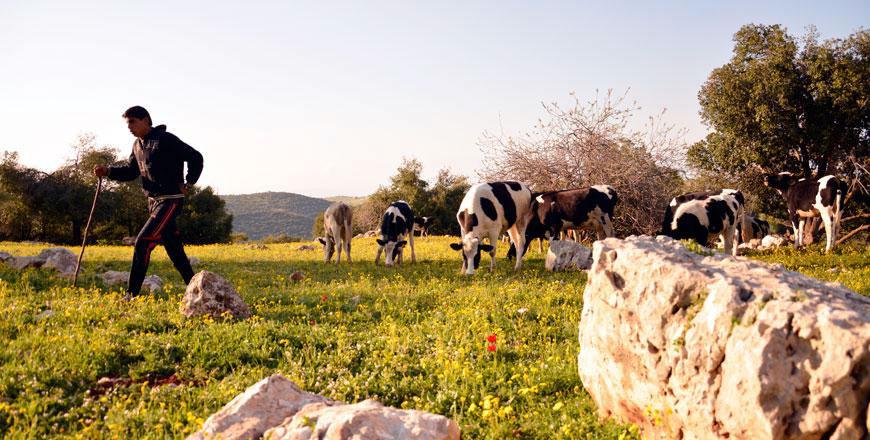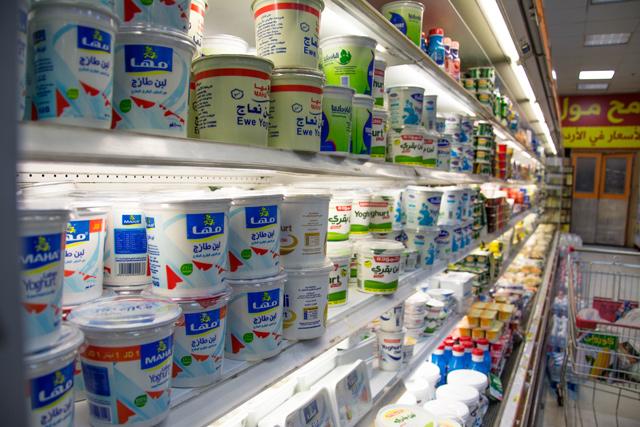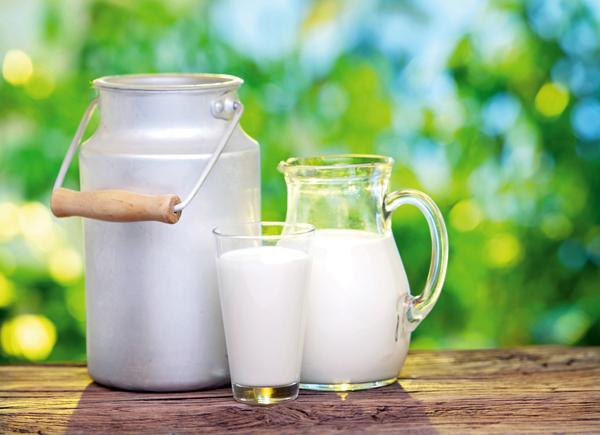You are here
Agriculture Ministry ‘firm’ on dairy cow import ban
By Maram Kayed - Mar 08,2020 - Last updated at Mar 08,2020

The number of cow farms in the Kingdom amounts to about 700, 60 per cent of which are located in Al Dhulail area in Zarqa Governorate (File photo)
AMMAN — The Ministry of Agriculture “stands firm” in its decision to prohibit cow imports until further consultations and a unanimous vote on the issue is taken within the sector, according to Ministry Spokesperson Lawrence Majali.
Minister of Agriculture Ibrahim Shahahdeh added in a statement that the ministry plans to resume the implementation of the decision and that there are “no current plans” to open the door for dairy cow imports.
A committee, formed by the Investment Authority, the Ministry of Agriculture and the Ministry of Industry, Trade and Supply has made “strenuous efforts during the past months to reduce the harms done to local farmers and livestock breeders as a result of past open policies regarding the import of cows and dairy products”, according to Shahahdeh.
The number of cow farms in the Kingdom amounts to about 700, 60 per cent of which are located in Al Dhulail area in Zarqa Governorate. In late 2019, when the government prohibited the import of non-Jordanian milk powder, stakeholders in the sector told The Jordan Times that the decision has “helped revive the cattle sector”.
Represented by the Cooperative Society for Cattle Owners and Milk Producers, the sector said that, without the ban, dairy prices would have gone up. When the ban was extended to cows, the sector welcomed the decision.
In recent months, some but not all dairy product imports have been banned by the ministry, but a vision to reduce imports, especially that of milk, is currently being investigated, as put by Majali during a phone interview with The Jordan Times.
“The goal that we seek to achieve is to meet the demands and needs of stakeholders in the livestock breeding sector and help them overcome the difficulties that have been facing their investments, noting at the same time the need to activate the role of all related sectors in order to find new job opportunities to absorb the vacant workforce and reduce unemployment,” Shahahdeh noted in the statement.
Salameh Mawazeen, a member of the Cooperative Society for Cattle Owners and Milk Producers, told The Jordan Times that the sector has been “suffering” from major problems since 2017, most notably from high operation costs and marketing difficulties.
However, the sector “seems to be swimming back to a safe shore as a result of the new Ministry of Agriculture policies based on the protection of local products”, Mawazeen added.
“We hope that in the coming period, the tax on production inputs, which poses a real risk to the production costs of rearing cows, would be abolished, helping the sector to recover even more,” he concluded.
Related Articles
AMMAN — The competitive protection of local milk is “helping revive the cattle sector”, a meeting between the Ministry of Agriculture and ca
AMMAN — The recent heatwave has contributed in reducing milk production by 20 per cent, President of the Association of Al Dhuleil Dairy Cat
AMMAN — The Amman Chamber of Industry (ACI) on Sunday called for allowing cattle imports, citing the necessity of enhancing the Kingdom’s pr

















